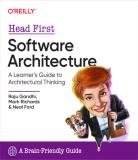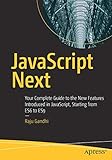Raju Gandhi
Founder, DefMacro Software
Raju is a software craftsman with almost 20 years of hands-on experience scoping, architecting, designing, implementing full stack applications.He provides a 360 view of the development cycle, is proficient in a variety of programming languages and paradigms, experienced with software development methodologies, as well an expert in infrastructure and tooling.
He has long been in the pursuit of hermeticism across the development stack by championing immutability during development (with languages like Clojure), deployment (leveraging tools like Docker and Kubernetes), and provisioning and configuration via code (toolkits like Ansible, Terraform, Packer, everything-as-code).
Raju is a published author, internationally known public speaker and trainer.
Raju can be found on Twitter as @looselytyped.
In his spare time, you will find Raju reading, playing with technology, or spending time with his wonderful (and significantly better) other half.
Presentations
Web Application Design from a Developer's perspective
1:30 PM MDT
Poorly designed web applications fail to serve both the business and the users, leading to a unnecessary costs, and frustrated customers. By keeping the user in mind, and following a few simple guidelines, you can make huge leaps in the way your users interact with your applications.
In this session, we will focus on the enterprise - where the user-base is known and fairly consistent, but typically where user interface and interaction are not the top most priorities. We will discuss some rules for good design, look at a few simple design elements that can make your web apps shine, and your users rejoice.
jRuby Workshop
3:15 PM MDT
The last decade has seen an explosion in the number of languages targeting the Java runtime. Amongst these, one of the (arguably) strong contenders is JRuby - a 100% Java port of the Ruby language. Ruby aims to make programmers “happy”, and with JRuby you can find happiness without having to leave your favorite runtime! JRuby also provides deep integration with Java, allowing you to leverage existing Java libraries while writing code that is succinct, elegant and beautiful.
In this hands-on workshop we will talk about JRuby the language, explore it's syntax and constructs like classes and modules. We will discuss advanced topics like meta-programming and domain specific languages, see how we can write Java applications without writing Java code, and some potential gotchas.
Feel a sense of elation? Already rubbing your hands in glee? Well look no further than this workshop - with lot's of examples and practice code (read: bring a laptop) to work with, you will certainly walk away feeling a sense of euphoria.
jRuby Workshop
5:00 PM MDT
The last decade has seen an explosion in the number of languages targeting the Java runtime. Amongst these, one of the (arguably) strong contenders is JRuby - a 100% Java port of the Ruby language. Ruby aims to make programmers “happy”, and with JRuby you can find happiness without having to leave your favorite runtime! JRuby also provides deep integration with Java, allowing you to leverage existing Java libraries while writing code that is succinct, elegant and beautiful.
In this hands-on workshop we will talk about JRuby the language, explore it's syntax and constructs like classes and modules. We will discuss advanced topics like meta-programming and domain specific languages, see how we can write Java applications without writing Java code, and some potential gotchas.
Feel a sense of elation? Already rubbing your hands in glee? Well look no further than this workshop - with lot's of examples and practice code (read: bring a laptop) to work with, you will certainly walk away feeling a sense of euphoria.
Books
Head First Software Architecture: A Learner's Guide to Architectural Thinking
by Raju Gandhi
If you're a software developer looking for a quick on-ramp to software architecture, this handy guide is a great place to start. From the authors of Fundamentals of Software Architecture, Head First Software Architecture teaches you how to think architecturally and explores the unique challenges of software architecture. You'll learn the distinction between architecture and design and the relationship between code, components, and architectural styles. You'll also learn how to work with some common architectural styles through vivid, fun examples. Quick, easy, and entertaining, this book is a valuable introduction to the world of software architecture.Head First Git: A Learner's Guide to Understanding Git from the Inside Out
by Raju Gandhi
Many people who use Git rely on "recipes"--copying and pasting commands they find on the internet without really understanding how Git actually works. But what do you do if you find yourself in a tight spot? You can't simply wing it. With this unique hands-on guide, you'll learn the ways of Git and have fun while doing it. Raju Gandhi peels back the layers to reveal the simple yet powerful engine that powers Git, so you'll understand not just the how but the why. You'll master branches, merges, commit messages, search, utilities, and more; learn best practices for collaborative work; and unlock the full potential of Git.If you've read a Head First book, you know what to expect--a visually rich format designed for the way your brain works. If you haven't, you're in for a treat. With this book, you'll learn Git through a multisensory experience that engages your mind rather than a text-heavy approach that puts you to sleep.
JavaScript Next: Your Complete Guide to the New Features Introduced in JavaScript, Starting from ES6 to ES9
by Raju Gandhi
JavaScript has finally grown up. Armed with a slew of new features, JavaScript now makes writing the code that powers your applications elegant, concise, and easy to understand. This book is a pragmatic guide to the new features introduced in JavaScript, starting with Edition 6 of ECMAScript, and ending with Edition 9.
Using a "compare and contrast" approach, each chapter offers a deep dive into new features, highlighting how best to use them moving forward. As you progress through the book, you'll be offered multiple opportunities to see the new features in action, and in concert with one another.
Backed by an example-driven writing style, you'll learn by doing, and get ready to embrace the new world of JavaScript.
What You'll Learn
- Provide a deep exposition of the new features introduced in ES6 through ES9
- Review how JavaScript's new features by-pass any limitations of an existing approach
- Examine the refactoring necessary to go from old to new
- Demonstrate how JavaScript's new features work in unison with each other
Who This Book Is For
New and experienced developers who wish to keep abreast of the changes to JavaScript and deepen their understanding of the language.



